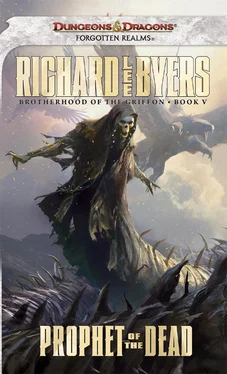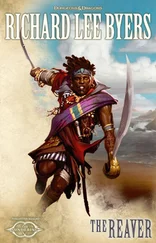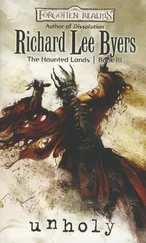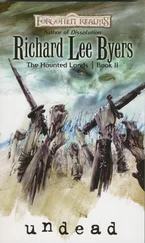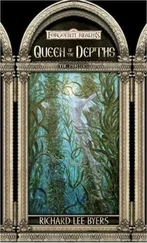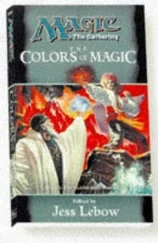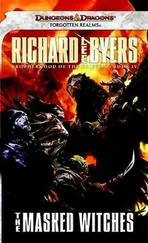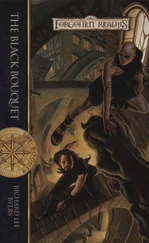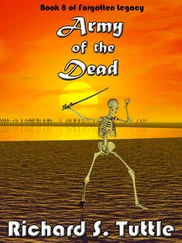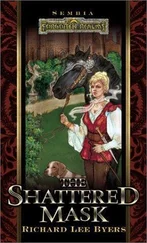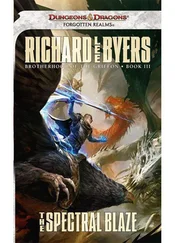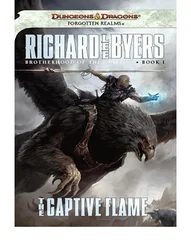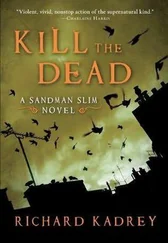Richard Byers - Prophet of the Dead
Здесь есть возможность читать онлайн «Richard Byers - Prophet of the Dead» весь текст электронной книги совершенно бесплатно (целиком полную версию без сокращений). В некоторых случаях можно слушать аудио, скачать через торрент в формате fb2 и присутствует краткое содержание. Жанр: Фэнтези, на английском языке. Описание произведения, (предисловие) а так же отзывы посетителей доступны на портале библиотеки ЛибКат.
- Название:Prophet of the Dead
- Автор:
- Жанр:
- Год:неизвестен
- ISBN:нет данных
- Рейтинг книги:4 / 5. Голосов: 1
-
Избранное:Добавить в избранное
- Отзывы:
-
Ваша оценка:
- 80
- 1
- 2
- 3
- 4
- 5
Prophet of the Dead: краткое содержание, описание и аннотация
Предлагаем к чтению аннотацию, описание, краткое содержание или предисловие (зависит от того, что написал сам автор книги «Prophet of the Dead»). Если вы не нашли необходимую информацию о книге — напишите в комментариях, мы постараемся отыскать её.
Prophet of the Dead — читать онлайн бесплатно полную книгу (весь текст) целиком
Ниже представлен текст книги, разбитый по страницам. Система сохранения места последней прочитанной страницы, позволяет с удобством читать онлайн бесплатно книгу «Prophet of the Dead», без необходимости каждый раз заново искать на чём Вы остановились. Поставьте закладку, и сможете в любой момент перейти на страницу, на которой закончили чтение.
Интервал:
Закладка:
But even the frenzied urge to slake it didn’t keep her from faltering in shock when something tore the antler-axe from her hands.
Nyevarra had summoned several winds to attend her, but that hadn’t prevented Jhesrhi from calling one of her own. It had simply kept the durthan from sensing the newcomer when several other such invisible presences were already moaning and gusting around.
As instructed, Jhesrhi’s ally had hovered and waited for an opportune moment to snatch the talisman. Now it was sweeping the staff away over the heads of the combatants on the ground, taking it where she hoped it would do the most good.
Jhesrhi spoke a word of power and lunged to meet the descending Nyevarra in the moment of her consternation. Charged with force, the head of her staff stabbed into the vampire’s chest like a stake. Jhesrhi recited a rhyme to send a bit of her own vitality streaming down her weapon and poison the impaled creature with the essence of natural life.
But as she spoke the final syllable, she realized she was reciting the wrong spell. It was flame that leaped from the core of her, surged down the length of the staff, and burned Nyevarra from the inside out.
As Jhesrhi looked down at the blackened, smoking husk crumpled in the snow, panting all the while, she told herself the lapse didn’t matter. She had, after all, fought in the way she’d intended. She’d only used fire to finish off an opponent she’d already beaten, and then in a way that couldn’t possibly start the forest fire the hathrans feared.
But it did matter. For a moment, at least, and despite her resolve, fire had wielded her and not the other way around. A tear slid from her eye, and when she furiously wiped it away, she saw it was burning like ignited oil.
An Old One wielded a shimmering wand and a fey warrior with gnarled bark for skin and moss for hair were fighting ghouls just a few paces to the left. Still, for Cera, the frenzied, roaring mundane part of the battle seemed vague and far away. She was chiefly aware of warmth that seemed to flower in the core of her and shine down on her from above at the same time and of the poisonous darkness with which it contended.
She couldn’t afford to let her focus stray anywhere else. Because so far, her prayers and words of anathema showed no signs of lifting the unnatural gloom. In fact, the murk was still thickening.
Perhaps she’d been foolish to imagine she could dissolve it. The durthans had been weaving their enchantments for tendays, and the Urlingwood was a place of power for them even if the hathrans had previously cast them out.
Scowling, she strained to shove doubt out of her mind. If she only remained steadfast, her god would find a way to help her.
She took a long, centering breath and recited another spell of exorcism that proved as ineffective as the last. Then, however, Yhelbruna strode out of the murk with the Stag King’s antler-axe in her hand.
“I discern that this,” said the hathran, hefting the fey weapon, “was used to bring Shadow. If so, it can help banish it as well. Continue your rites, sun priestess, and I’ll support them with my own magic.”
Cera resumed her prayers, and Yhelbruna chanted and brandished the staff as if she were clubbing and raking an invisible foe. Despite their disparate mystical traditions, they were soon declaiming in counterpoint, reinforcing one another’s incantations in the manner of accomplished spellcasters.
Gradually, the twinges of anxiety and incipient aches, the malaise trying to worm its way into Cera’s mind and body, faded away. Then the physical gloom began to lighten.
At those moments when Vandar was within striking distance of a foe, he didn’t think. Rage singing inside him, guided by instinct, he attacked relentlessly and ducked and dodged as necessary.
When he was between fights, however, his anger subsided just enough to allow flickers of reflection. Now was such a moment, and it occurred to him that the undead must still include Nar demonbinders among their number, for the thing several paces in front of him looked more alien and unnatural than even the most grotesque dark fey. A headless, asymmetrical tangle of huge bony claws and projecting spikes, it walked on four crooked, mismatched legs and bore a cluster of little round eyes in the middle of its body.
At present, the demon was smashing an iron construct in the shape of a small wyvern to pieces. Vandar rushed it, hoping to catch it by surprise, but it pivoted and lifted its giant claws to threaten him. He kept charging.
A claw jabbed at his head, and he sprang out of the way without breaking stride. That put him on the verge of flinging himself onto one of the immobile but still potentially deadly horns that bristled from the demon’s shell. He twisted past the point, leaped, and cut at the cluster of eyes.
The demon fell over thrashing, and as it rolled back and forth, the flailing of the various claws and spikes was almost as dangerous as if it were attacking deliberately. Fortunately, Vandar had to avoid them for only a couple of heartbeats before the convulsions came to a sudden end.
He studied the fiend for a moment, satisfying himself that he truly had killed it, then looked around for his next foe. Some distance away, rearing over the heads of smaller combatants, the undead creature called Lod hurled a jagged blast of darkness from his hand. Wheeling around the bone naga, Jet dodged, and, astride the black griffon’s back, Aoth hurled shafts of blue light from his spear point.
The red sword urged Vandar in that direction. Because Lod was the leader of the Eminence of Araunt, the ultimate author of Rashemen’s troubles, and the most formidable horror on the battlefield. And if Vandar didn’t play a central role in his destruction, it was Aoth and not he who would be remembered as the hero of the conflict.
Then, however, Vandar realized the gloom was lifting. Using the spines like a ladder, he scrambled up on the demon’s carcass in hopes of seeing why.
Cera, Yhelbruna-now in possession of the Stag King’s antler-axe-and a couple other hathrans stood in attitudes of invocation amid a luminous yellow haze. Plainly, their magic was burning away the dark.
Unfortunately, Vandar wasn’t the only one who’d figured that out. Undead and dark fey were turning in increasing numbers to push toward the sunlady and witches while mortals, bright fey, and golems struggled to hold them back.
Vandar suspected that keeping the exorcism going and so restoring the daylight was even more important than slaying Lod. Still, the sword insisted that any warrior who battled to protect Yhelbruna, Cera, and the other women would simply be one of many. It was champions who bested terrible foes in single combat-or at worst, with the aid of a comrade or two-who won glory.
But Vandar didn’t deserve glory. Not after all his selfishness and disastrous miscalculations. He ordered the sword to be silent and started fighting his way toward the golden glow.
At first, it proved fairly easy to cut down foes who were pushing in the same direction. Then, however, he glimpsed a hulking form from the corner of his eye.
When he turned and took his first close look at Uramar, he felt like a fool for ever mistaking the zombie counterfeit he’d slain under the Fortress of the Half-Demon for the true blaspheme. The genuine patchwork man was even more thick-built, scarred, and misshapen, with eyes of two different colors set at different heights.
Something had ripped away Uramar’s breastplate and shredded the flesh beneath, exposing and breaking ribs in several spots. Yet despite his ill-made body and gaping wounds, his two-handed blade struck constantly and to murderous effect. Essentially, he and Vandar were doing the same thing: cutting down foes who were likewise struggling closer to the sunlady and hathrans. But everyone the greatsword even nicked withered and rotted even as he fell.
Читать дальшеИнтервал:
Закладка:
Похожие книги на «Prophet of the Dead»
Представляем Вашему вниманию похожие книги на «Prophet of the Dead» списком для выбора. Мы отобрали схожую по названию и смыслу литературу в надежде предоставить читателям больше вариантов отыскать новые, интересные, ещё непрочитанные произведения.
Обсуждение, отзывы о книге «Prophet of the Dead» и просто собственные мнения читателей. Оставьте ваши комментарии, напишите, что Вы думаете о произведении, его смысле или главных героях. Укажите что конкретно понравилось, а что нет, и почему Вы так считаете.
